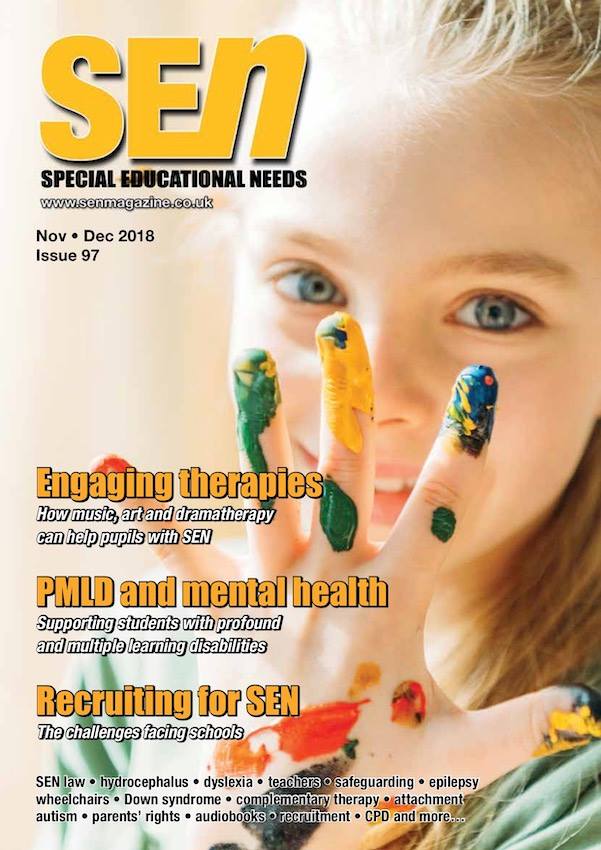Education Advisers consultant Sioban O’Connor argues that categorising SEN can provide a useful basis for support in the latest edition of SEN Magazine - senmagazine.co.uk
I am struck by a strange kind of paradox in society which, on one hand, claims to celebrate the individual while on the other, is wary of those who don’t conform. We love to categorise; it brings a sense of clarity, order and understanding in terms of who and what people and things are to us: “she’s my best friend”, “a colleague from work”, “my dentist”, “a neighbour” and so on. I don’t mean to sound glib; these examples are innocuous but, when it comes to identifying or categorising children with SEN, opinion is divided.
Seven years ago, I came across an article in a well known newspaper, in which the journalist called for the labelling of children to stop. She argued, to an extent rightly, that when children are labelled in some cases as young as five, this leads to them being perceived throughout their school careers as functioning on a level that is not the same as their peers. However, what haunted me was her assertion that by attempting to explain in ways that are universally understood by all stakeholders, schools were sending out a message that we had somehow given up on that child before s/he had even started.

She is not alone in this view. In my years as a teacher and school leader, I met lots of parents who were reluctant to tell the school that their child needed support and the resultant misunderstanding of the issues meant that valuable time was lost and usually a lot of upset caused. Parents often appeared embarrassed, as though somehow their child was not good enough. Sadder still were those families who would apologetically explain that their child “had such and such”, and then underscore that announcement with the caveat, in front of said child, that a sibling was at a “highflying academic school up the road”.
Even now in my role as an education adviser, I come across families who do not say from the outset that their child has, or more importantly would benefit from, an education, health and care (EHC) plan. Knowing this would enable all parties to unite in putting the right kind of support in place and equally empower the parents to know what to expect for their child. Rest assured that schools are increasingly well versed with dealing with a wide range of SEN.
Trusting professionals
We live in much more enlightened times. Surely none of us would like a return to the days of schooling where all children were expected to confirm to a one-size-fits-all attitude, or simply fail. Schools are aware of their obligations to support all children. Such is the strength of the commitment to addressing every child’s educational, emotional and behavioural needs that much time is spent training staff to ensure that this happens. SENCOs work tirelessly to establish best practice strategies that make education more accessible to a wider range of children than ever before – from extra time in exams to the use of ICT and individual readers and scribes, to name just a few.
I am not so naive as to think the system is perfect. School budgets are continuously being cut and increasingly overcrowded classes mean that resources are spread ridiculously thin and teachers and support staff are overstretched. Even in the Independent sector where resources are more plentiful, although costly, there is still lack of provision for those children for whom education and life is challenging. However, trust that we share the same goal: every child does matter. Without a starting point, how can we begin to ensure that the right kind of support is put in place? Think of the label as that starting point. You know your child; speak to the school and tell them your hopes and fears; in turn, you will help them and help your child.
Issue 97: Nov/Dec 2018 of SEN Magazine - https://senmagazine.co.uk/latestissue/main/static/latestissue?fbclid=IwAR3VFQc1zVyo1y_6f8KNKZCxFihYQbMNtQuB-FhXp4ye5h90A1Dt556yoGw
